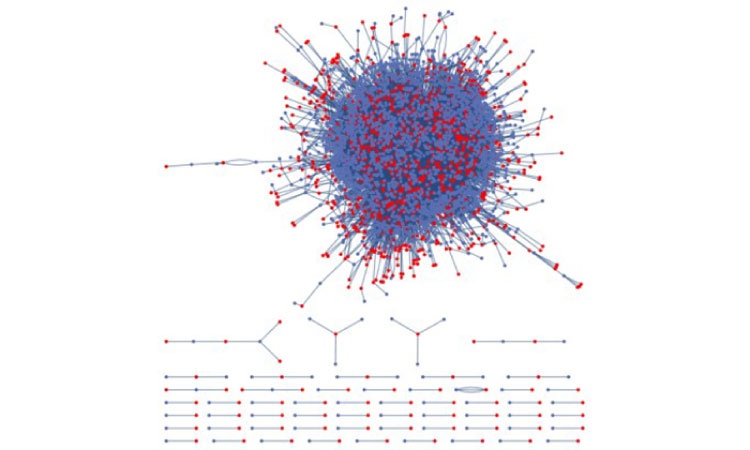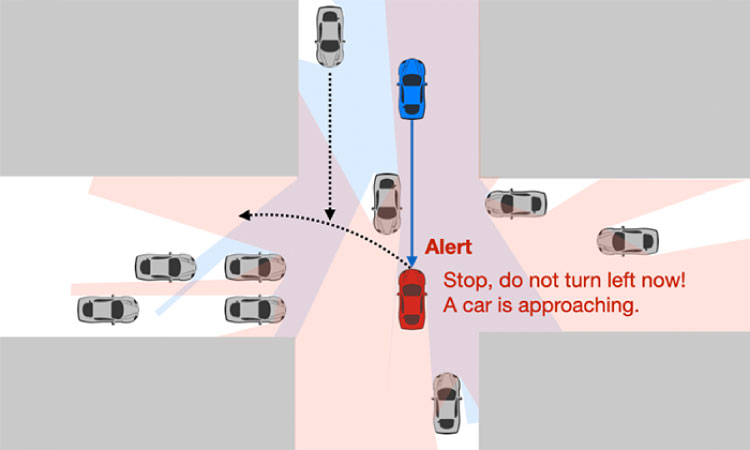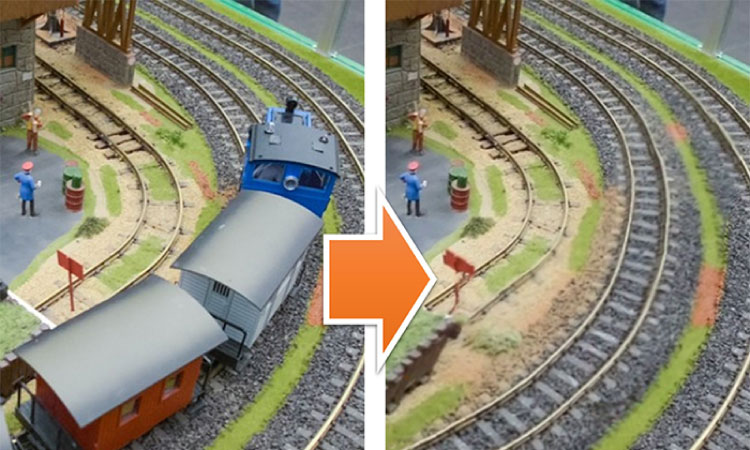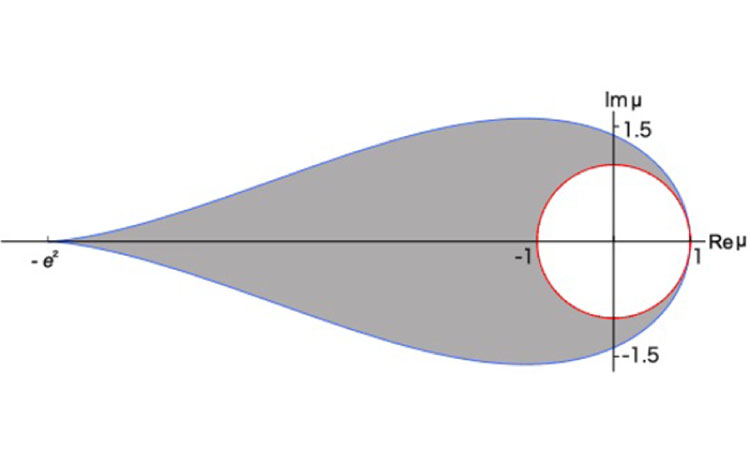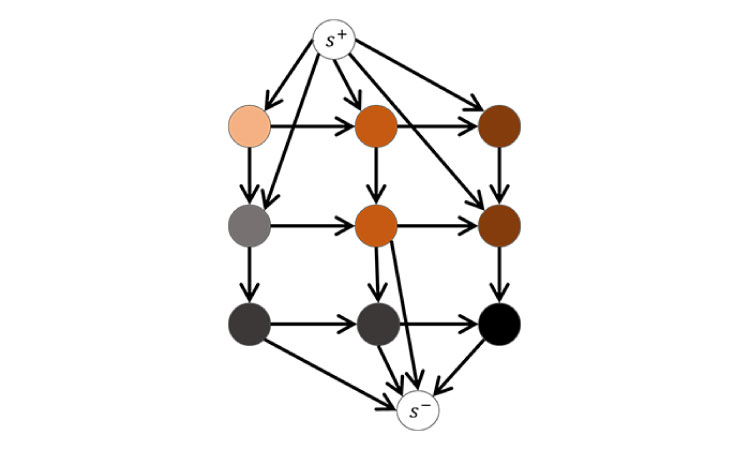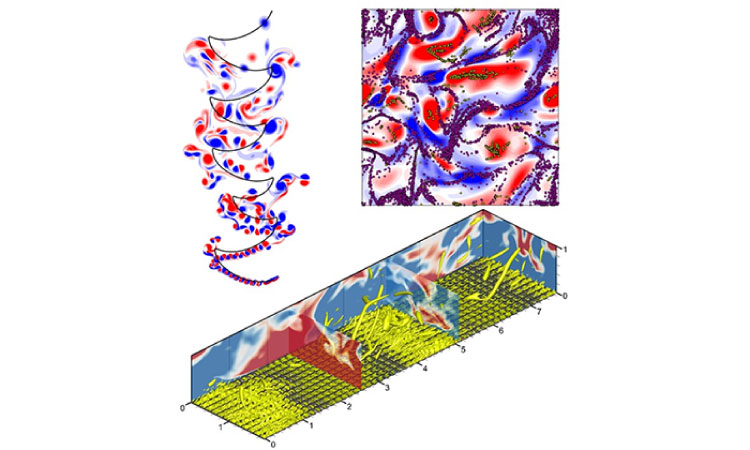Department of Mathematical and Systems Engineering
Top Departments Department of Mathematical and Systems Engineering
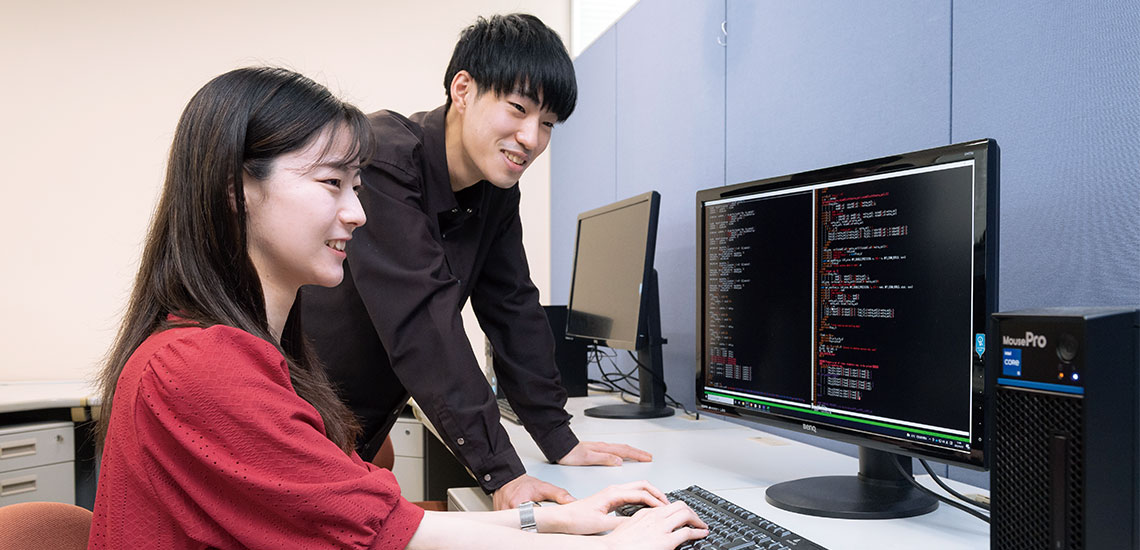
Education
The Department of Mathematical and Systems Engineering aims to educate independently-minded systems engineers, contributing to the harmony between the natural environment and the human society. We offer an educational program consisting of mathematical science and information science, which form the base of systems engineering. Subjects in the former field include mathematical modeling, simulation methods, numerical calculation, and mathematical optimization. On the other hand, subjects in the latter field contain programming, algorithms, computer networks, and computer architecture. To help students to develop necessary skills for creating optimal systems that are both human and environment friendly, we apply the learned knowledge in the basics to the field of environmental science and engineering contain environmental systems engineering and environmental design. We also introduce group-based learning such as applied practice of systems engineering and programming contests, aiming at developing students’ presentation and communication skills, learning and research abilities, and creativity.
Academic/Field of Study
- Mathematical Analysis
- Modeling
- Simulation Methods
- Mathematical Optimization
- Algorithms
- Computer Networks
- Life Cycle Assessment
After Graduation
Nearly 100% employment rate in a wide range of industries
More than half of the students graduating from the Department of Mathematical and Systems Engineering go on to master’s course, and after completing their master’s degrees, a number of them go on to complete doctoral degrees. The graduates with a bachelor’s or master’s degree from this department have been hired by well-known leading companies in the following industries: transport machinery, transportation, manufacturing, communication, service, etc.
Major Employers of Our Recent Graduates (2022-2024)
- Aisin Corp.
- Central Nippon Expressway Co. Ltd.
- Daikin Industries, Ltd.
- Daiwa Securities Co. Ltd.
- Denso Corp.
- Fujitsu Ltd.
- Hamamatsu Photonics K.K.
- Hitachi, Ltd.
- Honda Motor Co., Ltd.
- KDDI Corporation
- Kyndryl Japan KK
- Mitsubishi Electric Corp.
- Mitsubishi Heavy Industries, Ltd.
- Nagoya Broadcasting Network Co., Ltd.
- Nippon Telegraph And Telephone Corp.
- NTT Data Group Corp.
- Otsuka Corp.
- Recruit Co., Ltd.
- Ricoh Co., Ltd.
- Roland DG Corp.
- SCSK Corp.
- Sega Corp.
- Sky Co., Ltd.
- SUBARU Corp.
- Suzuki Motor Corp.
- The Shizuoka Bank, Ltd.
- Tokyo Electron Ltd.
- Toyota Industries Corp.
- Toyota Motor Corp.
- Yamaha Motor Co., Ltd.
Available qualifications
- First-class Certificate for High School Teacher (Mathematics)
Faculty
Department of Mathematical and Systems Engineering
- Professor
Shinji Adachi
Variational Methods - Professor
Takafumi Akahori
Partial Differential Equations - Professor
Kazutoshi Ando
Discrete Optimization - Professor
Akira Hoshiga
Nonlinear Wave Equation - Professor
Genki Ichinose
Evolutionary Games, Evolutionary Computation - Professor
Susumu Ishihara
Computer Networks - Professor
Takashi Miyahara
Environmental Engineering - Professor
Rinko Miyazaki
Theory and Applications of Differential Equations - Professor
Satoru Morita
Nonlinear Dynamics - Professor
Kazunori Sato
Mathematical Ecology - Professor
Satoshi Yokojima
Environmental Fluid Mechanics - Associate Professor
Yohei Fujishima
Nonlinear Partial Differential Equations - Associate Professor
Guo-jie Jason Gao
Physics of Granular Materials, Molecular Dynamics - Associate Professor
Atsuhiko Kai
Spoken Language Processing - Associate Professor
Tomohiko Mizutani
Mathematical Optimization, Data Mining, Operations Research - Associate Professor
Miho Murata
Nonlinear Partial Differential Equations - Associate Professor
Toru Nakajima
Variational Method, Geometrical Analysis - Associate Professor
Makoto Okabe
Computer Graphics - Associate Professor
Yoshihiro Sekine
Operator Algebras - Associate Professor
Koichi Taniguchi
Harmonic Analysis, Partial Differential Equations - Associate Professor
Wei Wu
Combinatorial Optimization, Scheduling - Assistant Professor
Thanh V. Pham
Optical Wireless Communication, Communication Theory, Communication Engineering

